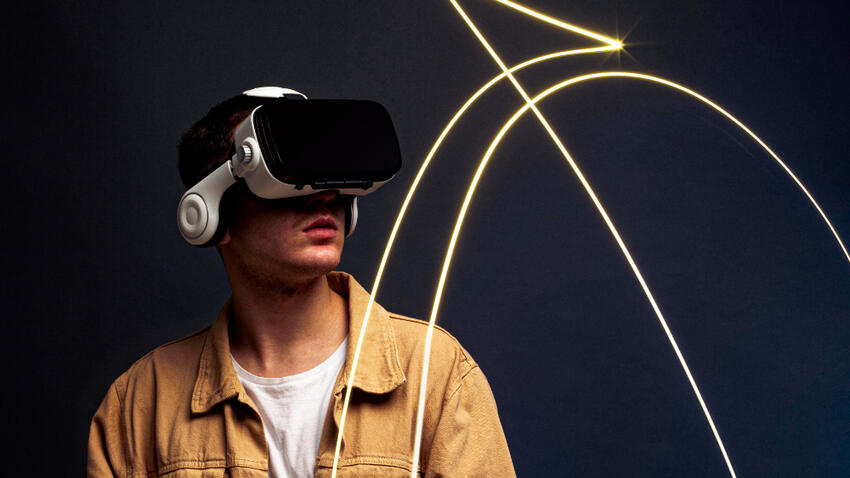Mark Zuckerberg could not have predicted AI would steal the show over the past three years since he bet Facebook’s future on the metaverse in 2021. The basic concept—a seamless, social, immersive digital space where people work, play, shop, and create—may already be out there, just not how we thought it would look, despite commentators’ relentless declarations that Zuckerberg’s dream is dead.
The Great Gamble of Meta
Zuckerberg took a very big risk by investing over $36 billion in Reality Labs between 2019 and 2023 when he renamed Facebook to Meta. “In the Metaverse, you will be able to do practically everything you can think,” he said, restructuring his business to concentrate on developing virtual reality ecosystems and hardware. However, this change came at a very high cost in terms of money and reputation. For instance, only in 2023, Meta’s Reality Labs reported $16.1 billion in losses.
Inward battles were put into open forum when the distinguished game programmer and executive announced his decision to leave the firm. “I think our company is performing at less than fifty percent the efficiency that makes me joyful,” said Carmack in a venomous goodbye letter. “We have an insane quantity of staff and resources but waste work and flagellate all the time,” he remarked.
Penetrating The World of AI
At a time when the metaverse business was finally getting going, the launch of ChatGPT in November 2022 turned out to be a technological avalanche. Companies stopped focusing on metaverse ideals and instead turned their focus toward AI deployment in light of post-pandemic economic challenges, seeking fast returns through automation and virtualization.
Similar challenges are being faced by Apple’s 2023 entry into the market with the Vision Pro VR headset. Apple is struggling to find its market at $3,499, with minimal content and a tiny developer community. Early estimates suggest initial production runs of less than 400,000 units.
Maybe we are hunting in the wrong places. Roblox has quietly built the possibly-real metaverse behind some gaming platforms, but to date, Meta, HTC, and Sony have only failed to realize their envisioned VR-first digital world.
Is the New Metaverse Roblox?
Roblox reported 88.9 million daily active users in Q3 2024, marking a 27% rise compared to the same period last year. The total revenues of $919 million marked a 29% rise over last year. What is perhaps more impressive is that its developer community made more than $740 million in 2023, pointing to an equally strong digital economy.
Because the platform was so popular, it attracted many brands that want to create virtual experiences: Nike, Gucci, the NFL, Mattel, and Walmart. Roblox’s tie-up with WPP points out a major thrust into branded experiences and advertising integration. But its tie-up with Shopify opened up even more commerce opportunities.
Often, how people in communities accept a social media platform is far more significant to its success than its technology. Instagram’s rise was spearheaded by the early influencers who shaped its cultural significance, whereas Twitter defined its voice through the rambunctious discussions on Black Twitter.
What’s appealing about Roblox as a potential metaverse challenger is the demographic reach. At first, it was very popular among younger users, but it appears over 41% of the daily active users are over 17, demonstrating its development into a more complete social network. The platform has produced millions of different virtual experiences that users have created. They show the kind of user-generated vibrancy that Meta’s Horizon Worlds found it hard to achieve – this product had fewer than 200,000 monthly active users at the beginning of 2023.
After all, Meta’s bold vision and important hardware advancements shouldn’t be overlooked—the Quest headsets brought virtual reality to more mainstream users, and Zuckerberg’s commitment to spatial computing drove progress throughout the industry. But this is a lesson in what is missing, not what Meta has failed at: that it seems it was the core properties of the metaverse—community, persistence, and presence—that found their way onto the old platforms while the industry waited for them to turn up.
Did we foresee this metaverse? Not exactly. However, while the tech giants were busy developing the perfect virtual reality platform, millions of players were already living, creating, and trading in the ever-growing virtual world of Roblox.
“The defining feature of the metaverse will be a sense of presence,” as Zuckerberg said. The presence came from a platform on which communities spontaneously coalesced, formed, and created lasting social and economic connections rather than from some corporate vision or state-of-the-art equipment.
It looks like the metaverse was just waiting to be discovered in places where people had already decided to belong rather than wait to be built.
Read Dive is a leading technology blog focusing on different domains like Blockchain, AI, Chatbot, Fintech, Health Tech, Software Development and Testing. For guest blogging, please feel free to contact at readdive@gmail.com.





